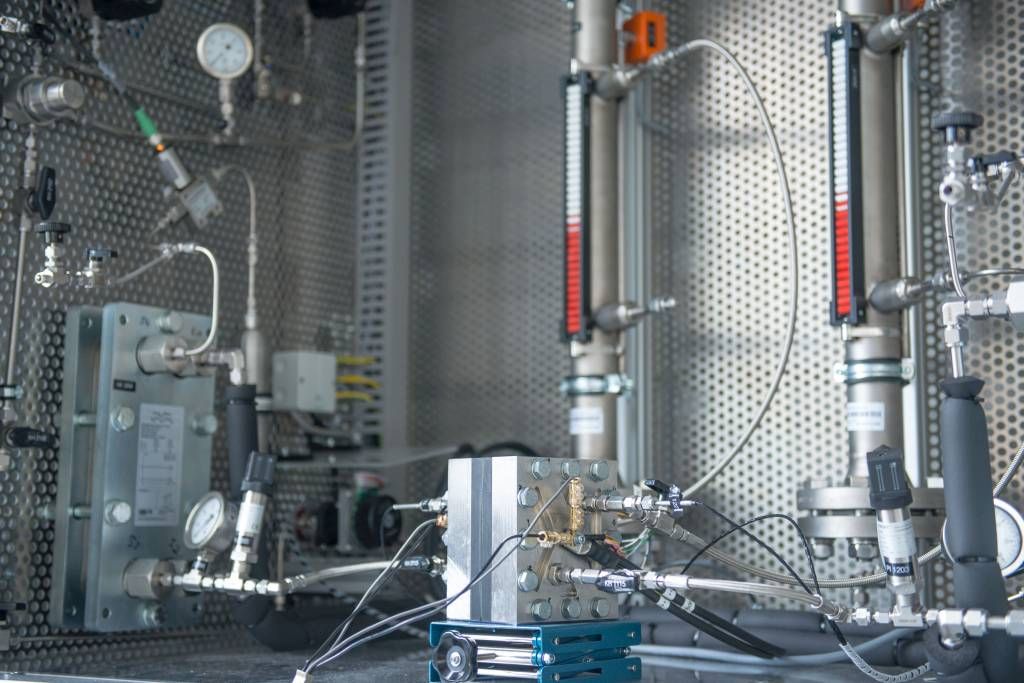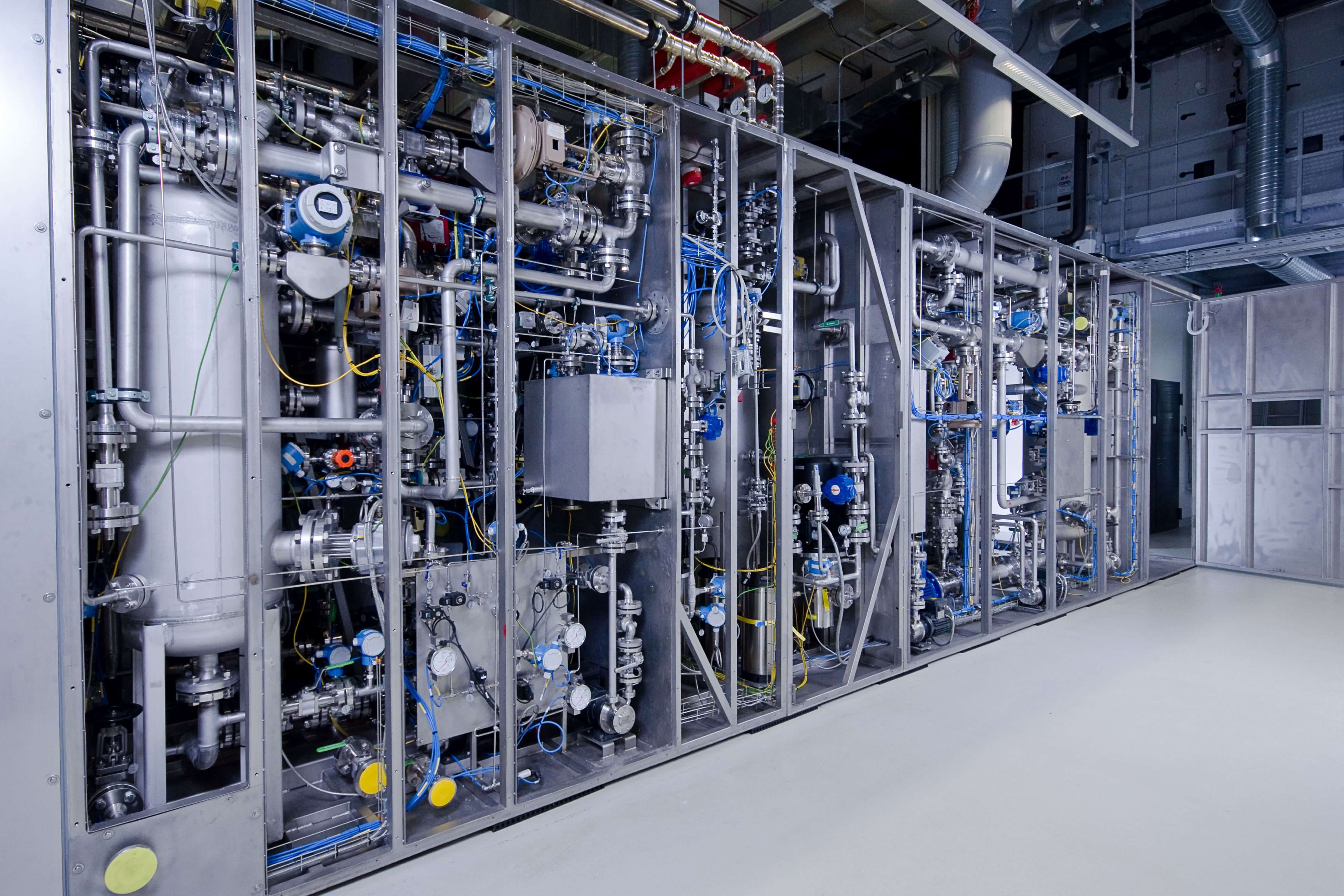| Duration: |
October 2018 - September 2021 |
| Contracting Authority/ Sponsors: | Federal Ministry for Economic Affairs and Energy (BWMi) |
| Project Partners: | Areva H2Gen; DVGW-Forschungsstelle; Europäisches Institut für Energieforschung; iGas Energy; Infraserv Höchst; Engler-Bunte-Institut des Karlsruhe Institut für Technologie; Institut für Technische Chemie und Polymerchemie des Karlsruhe Institut für Technologie; Technische Universität Berlin |
| Website: | https://www.methquest.de/ |
| Project Focus: |
MethFuel – Production and Use of Methane from Renewable Sources in Mobile and Stationary Applications
Joint project within the leading project MethQuest


In the lead project "MethQuest", technologies for the production and use of methane-based fuels from renewable sources are to be developed. A total of 27 partners from research, industry and the energy sector will be working together on six joint projects over the next three years. The Fraunhofer Institute for Solar Energy Systems ISE is researching the development of a novel, highly flexible PEM electrolysis system within the MethFuel network.
"MethQuest" is funded by the Federal Ministry of Economic Affairs and Energy (BMWi) with 19 million Euros. Rolls-Royce Power Systems and the DVGW Research Center (German Technical and Scientific Association for Gas and Water) at Engler-Bunte-Institute of Karlsruhe Institute of Technology (KIT) will coordinate the lead project.
In the joint project MethFuel, novel concepts in the field of process engineering are being developed for the provision of H₂and CO₂and for catalytic methanization. Compared to the state of the art, they have clear advantages in terms of load-flexible operation, instrumental implementation and energy efficiency.
Fraunhofer ISE focuses on the evaluation of different stack components (porous materials and membrane electrode assemblies). By means of various methods, these are exactly being characterized and examined for their longevity. To support the use of electrolysis, the PEM electrolysis system is realistically being simulated by means of a system simulation.
Fraunhofer ISE also supports the Technical University of Berlin in the selection of suitable cell components and the construction of a test stand for seawater electrolysis.